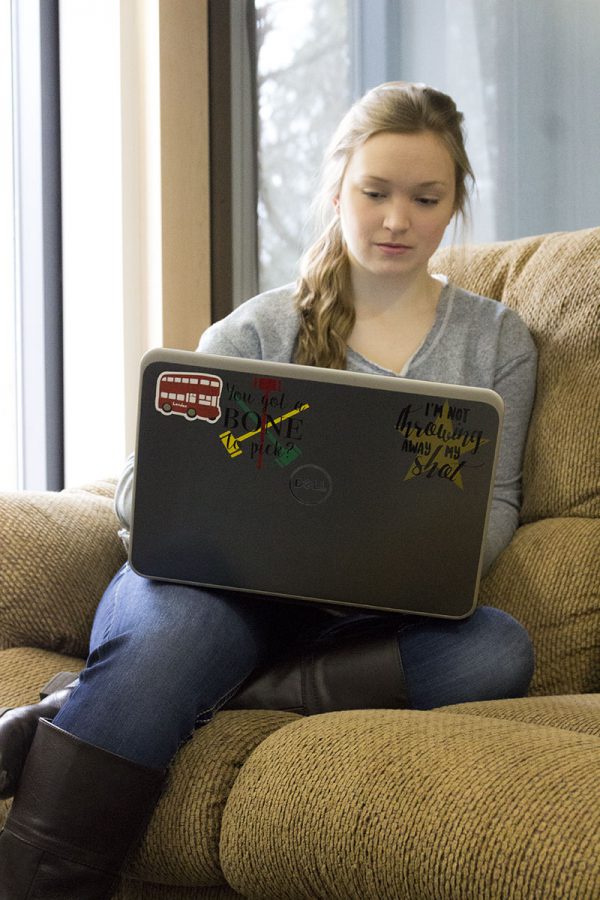Opportunities will also await students passionate about the arts
Passion in the workplace should be a necessity, not a luxury
More stories from Deanna Kolell
Photo by Kendall Ruchti
Written word is often an avenue where people can best express themselves.
It all began in the second grade. Gathering together all the crayons and paper I owned, I wrote and illustrated a series of stories about a protagonist named “Jenny.”
My 7-year-old self became convinced this was my true calling: storytelling.
Over the years, I filled notebooks and floppy disks with story ideas. At the age of 12, I finished my first novel manuscript, and I wrote four more within the next ten years.
Looking back on my early works is now a humiliating and amazing experience — humiliating because of my inexperienced syntax and cliched characters, and amazing because of how far I have come since then.
Only one option made sense when I had to choose my collegiate area of study. I proudly declared my creative writing major, excited at the opportunity to further develop my writing skills.
Of course, since then there have been many times I wondered if I was wasting my time with a useless degree that would only end in disappointment, something many others seemed to believe.
Almost every time I told someone I was an English student, the first words out of their mouths were, “Oh, so you want to be a teacher?”
It hurt because I felt like I had to justify my intelligence for choosing an “easy” area of study. Creative writing is a challenging subject to teach and learn because it is subjective — which many people translate to easy.
There is nothing easy about writing a story with fully developed characters, a continuous timeline, a semi-accurate representation of history, flawless grammar and a plot which doesn’t make readers want to throw it against a wall.
There is also nothing easy about having twenty of my peers and a published professor reading my piece in a workshop, which is where I am most vulnerable, pouring my heart out to people who may not understand or like what I’ve created.
I’m sure I’m not the only one who, at times, has felt worthless because of their choice of major. But what’s the point of learning the skills English courses provide if they’re only valuable to teach another wave of students? Reading, writing, critical thinking and clear communication are skills used in every line of work.
In any case, why should passion be code for useless? Gallup has conducted a survey of American workers’ engagement for the past few years. In 2015, the poll found around 31 percent of the surveyed workers felt engaged with their work.
Although these numbers are a little higher than 2011-13 levels, that means around 70 percent of workers are apathetic or actively disengaged from their work.
Teresa Amabile, a professor at Harvard Business School, wrote in the New York Times that disengaged and dispassionate workers can have other negative effects. If people don’t show up regularly to work, Amabile wrote, production and quality suffer.
So here I am, three months away from graduation and feeling almost absurdly confident in the choices I’ve made. I chose to follow my passion because although I have been successful in math and science courses, I have always loved language and stories, combined to explore the intimacies of human nature and the human mind.
However, my mom gave me some valuable advice: to take advantage of every opportunity.
Following my passion did not mean I would suddenly become an overnight sensation and never have to work a day in my life. If anything, it meant I would have to work doubly hard to find a career I loved doing and also paid rent.
So I tried my best to take advantage of every opportunity and apply my love of writing in various fields.
I worked as a tutor in the Center for Writing Excellence. I helped write grants for a local non-profit organizations. I learned to write social media content and for business publications. I wrote for the campus newspaper, something I never thought I would do or enjoy.
So to all you artistic souls, keep writing, singing, dancing, painting — whatever makes you feel fulfilled. Our world would be flat without brave individuals pushing the boundaries of artistic expression.
But always keep your eyes open to new opportunities that may be right around the corner.


